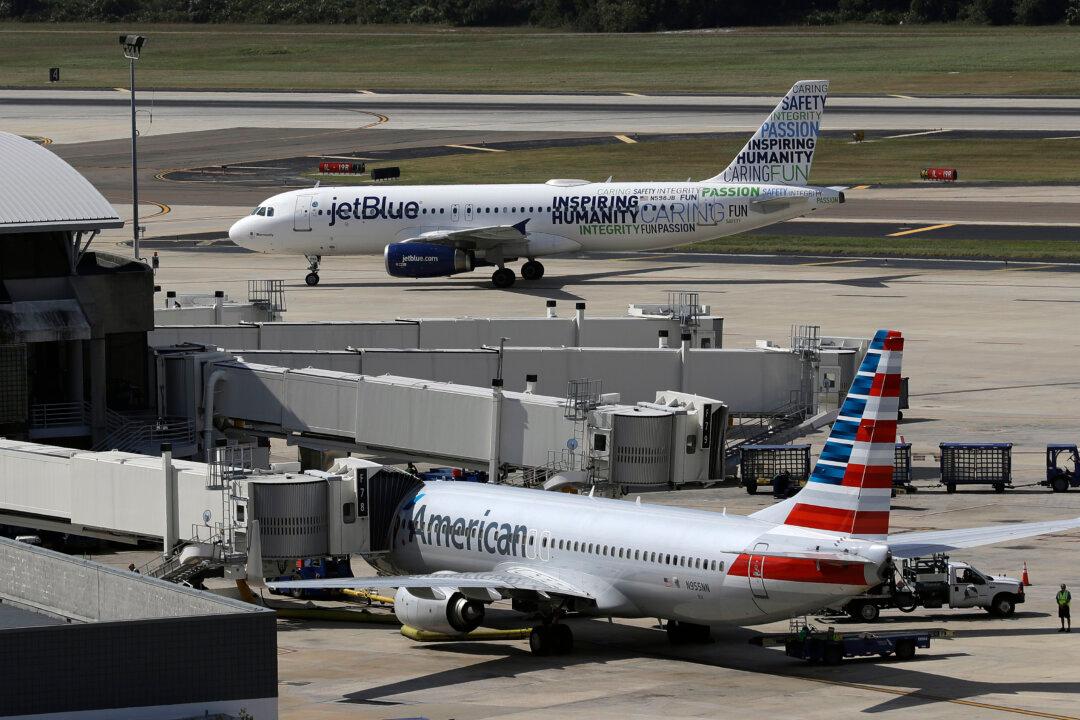A federal judge in Boston ruled Friday that American Airlines and JetBlue Airways must abandon their partnership in the northeastern United States on grounds that the merger between the two carriers is anti-competitive and harms customers.
The partnership between the two air carriers, a joint venture called the Northeast Alliance, was approved by the Transportation Department under former President Donald Trump and took effect in early 2021.





